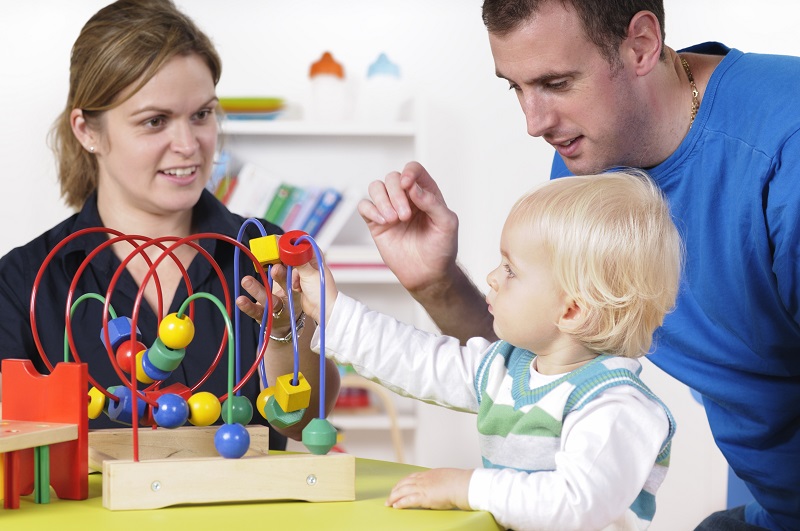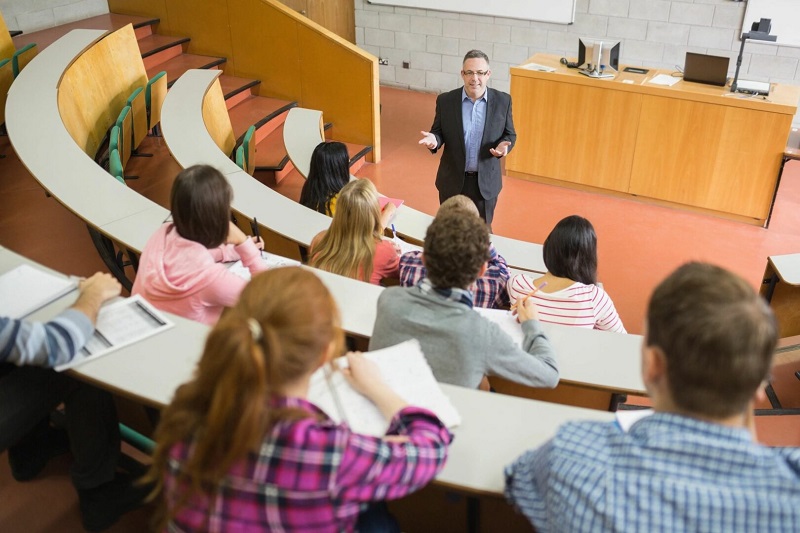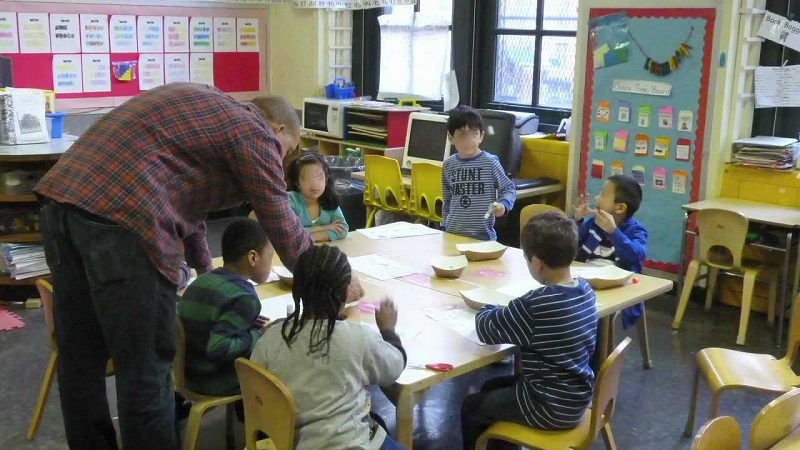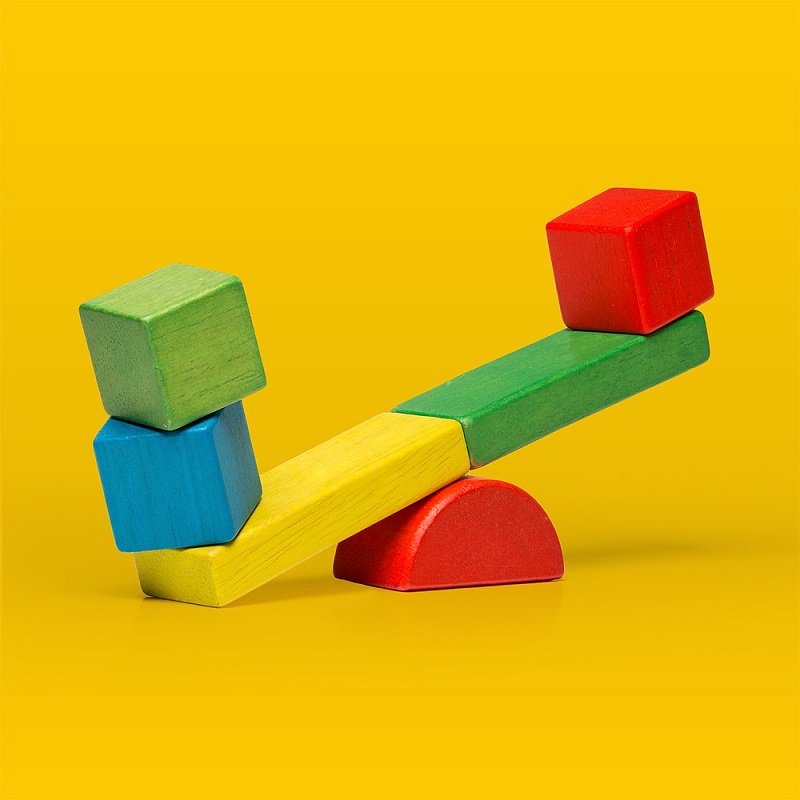The word education comes from the Latin educere which means to extract or extract, and from Educare which refers to instruct and form.
Education is the process of socialization where values, habits, customs, ways of acting, and knowledge are transferred to new generations.
It is defined as the process and / or act of acquiring or imparting skills and knowledge. During education, the person is stimulated to develop certain physical and cognitive capacities, which allows them to integrate into society.
Types of education
Formal education
It is also known under the name of regulated training. It is the type of education that is usually taught in universities, colleges, and certified institutions, where the student at the end of their studies receives a certification.
It is provided in educational institutions such as school and family, which have the conscious attitude of imparting knowledge, it has educational purposes, it is limited in its duration, systematic and exercised by professionals or parents.
These institutions have the capacity to provide academic degrees and are integrated into the educational body of a given country, comprising primary, secondary, and higher education or university degrees.
Through this type of education, students come to learn in a methodical, deliberate, and highly organized way.
Features
- Maintains a graded and systematic process.
- It is part of an administrative and academic model.
- It follows an organizational pattern established for each educational level or grade.
- It is taught in periods.
The education provided follows the internal rules established by the institution. This is always planned in advance since it is never done spontaneously, at the same time what is taught must be endorsed by the institution.
In many countries such as Mexico, formal education is divided into several stages, these can be:
Initial level: education given to boys and girls under six years of age.
Basic level: this education is given to boys and girls who pass to first, who are over six years old.
Middle level: this education is mostly taught to pre-teens, where they are prepared for high school.
Secondary level: Taught to children from 12 to 16 years old, where they are trained for university.
Higher-level: refers to the education given in institutions and universities that train professionals.
Informal education
Type of education that is imparted outside the campuses, that is, the person who imparts it does not follow regulations and does not deliver certifications that endorse the training carried out.
It takes place in institutions or in the media that generate non-school activities, and that still have an educational intention. For example toy libraries, independent literacy program, business activities, distance learning. It aims to use the media to teach a topic without having to adhere to conventional formal schooling.
This education is not compulsory, therefore every person of their own free will can choose this option, especially when seeking to reinforce their knowledge. An example of this education is the famous homework rooms taught to children outside of school.
The non – formal education takes place in institutions or media that generate non – school activities, and still handle its intent is educational. For example toy libraries, independent literacy program, business activities, distance learning. It aims to use the media to teach a topic without having to adhere to conventional formal schooling.
Features
- There is a need to learn.
- It has no relation to the formal system.
- It is structured and organized.
- Pursue learning goals.
- It takes place outside the educational system.
With this education, people manage to obtain skills and knowledge of certain training activities that have a planned and organized nature.
Informal education
It refers to the type of education that is not related to the particularities of formal and / or non-formal education.
Education is delivered in a flexible way, that is, it is not strict and all the content given is rooted in the things learned by the student in various settings.
An example where you get an education to inform is in the family circle, in the club, in a group of friends, etc.
This education is the first that the individual receives and the one that lasts a lifetime, since with contact with the outside and with each new experience the person manages to learn and accumulate new skills, knowledge, understanding, and attitudes.
It is what is received in the daily use of the press, radio, and TV. It is also obtained from contact with social groups, associations, or the development of free time activities such as conferences.
It is unconscious, unintentional, of continuous duration, and does not always achieve the purpose of training. Also called environmental, spontaneous, or incidental education.
Features
- It is involuntary.
- Spontaneous.
- It lasts forever.
- It takes place in any time or space.
- It is an extra-school type, that is, it is possible to learn during sports practices, artistic activities, and when interacting with other people.
Informal education
It refers to the type of education where the participant can expand their knowledge and skills in various fields of studies, integrating them in an orderly and planned way. Among the classes of education that are usually integrated are aesthetic, physical, moral, intellectual, religious, scientific, etc.
Universal education
It is the type of education aimed at everyone, with the aim that all members of society from a young age acquire moral forms and values that they must take into account throughout their lives.
It is aimed at all members of society so that new generations adopt the moral norms and values that they must put into practice in their environment, all equally. This could serve to maintain social order in a capitalist environment.
The universal education is the one that goes to all members of society so that new generations adopt the standards and moral values that must implement in your environment, all alike. This could serve to maintain social order in a capitalist environment.
Special Education
It is about the education with which certain people manage to obtain skills and technical knowledge that make them reach a level of professionalism that will help them to develop in society at a productive level.
It is aimed at individuals so that they obtain the knowledge and technical skills necessary for professional development, thus specializing and contributing to the productive development of society. Apart from these, there are some terms that are more common to hear in terms of education.
Integral education
It is the one that includes several kinds of education such as intellectual, moral, physical, religious, aesthetic education, etc. And it refers to the construction of the personality of man, as a being capable of putting a personal stamp on all the activities of his life, that is, that the human being is unique in his way of being and in his actions.
This human constitution also includes biological, psychological, spiritual, and social aspects. To achieve this, certain social conditions such as health, food, housing, and security must exist, so that the person is fully developed in all its aspects.
Public education
Public education is known as an education system that is offered by the state or government of each country for free. In these curricula are established that must be followed in a compulsory way by both the teacher and the students.
Private education
This is the education that is usually taught in certain centers not administered by the state, were to teach classes it is required that students pay a fee established by the institution.


